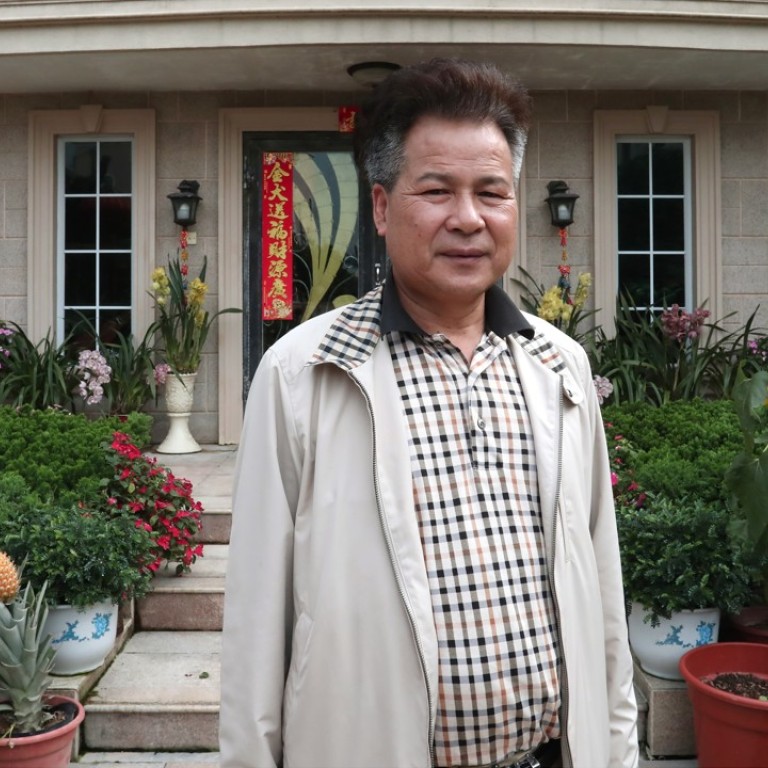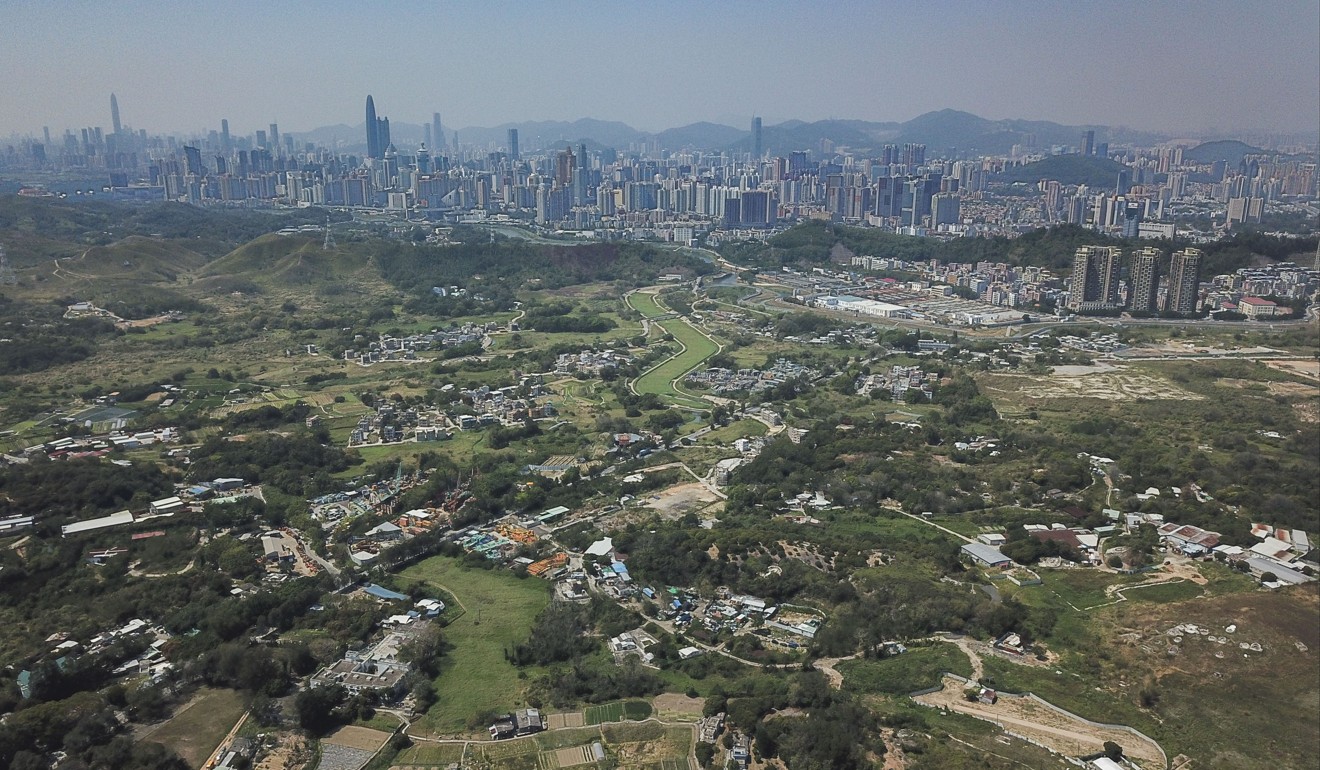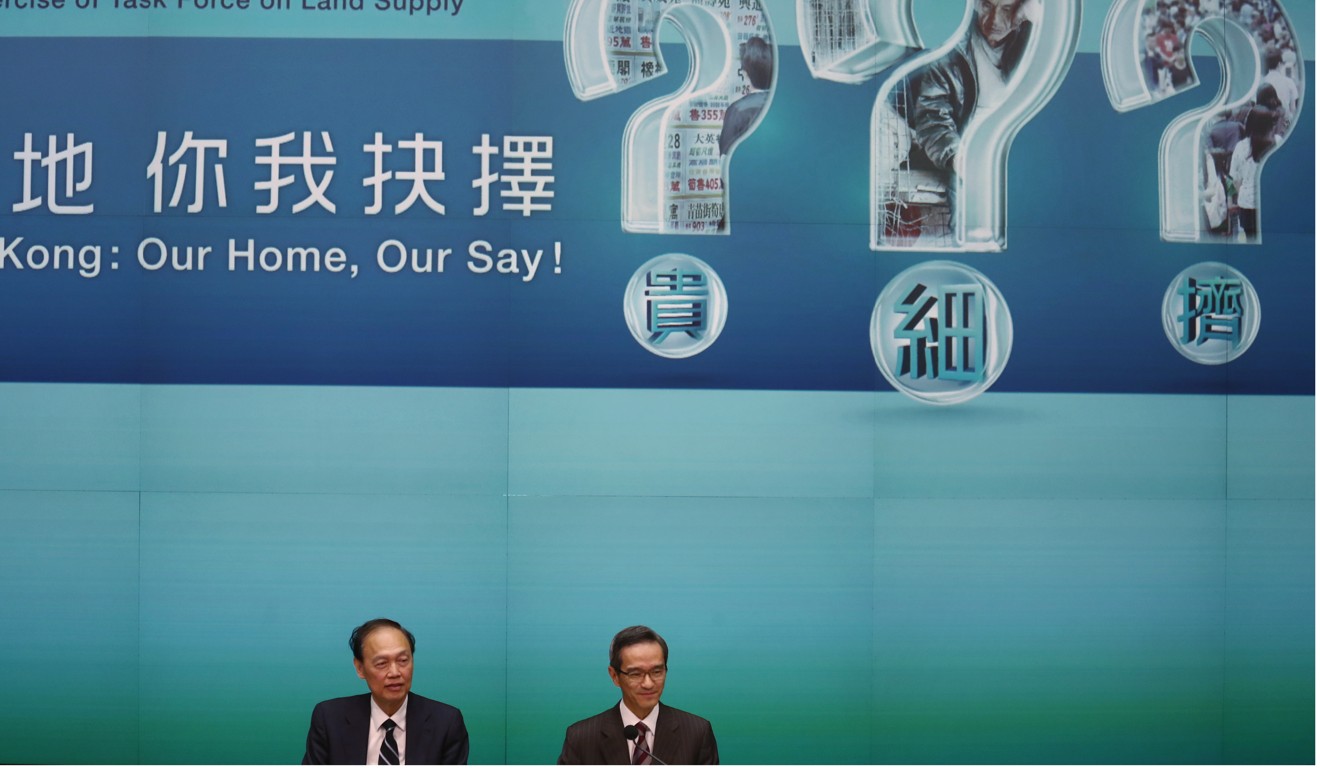
Give 30 per cent of development profits to land owners to ease housing shortage, Hong Kong rural leader says
Shap Pat Heung rural committee chairman Leung Fuk-yuen says this would speed up taking back of land in New Territories for building homes
The government should consider giving 30 per cent of the profits from development back to land owners to speed up land resumption in the New Territories and help ease the city’s housing shortage, a rural leader suggested on Monday.
“There are other individual land owners … The government should consider giving 30 per cent of the profits from development to them … because they provide the ‘flour’ [for the bread],” he added, citing the example of mainland Chinese cities such as Guangzhou and Shenzhen that had adopted such profit-sharing models to drive redevelopment.
Leung, 61, known as “Uncle McDonald” for his pompadour hairstyle, is a long-time defender of Hong Kong villagers’ interests. He has chaired the Shap Pat Heung rural committee for 14 years, which ensures him a seat on the influential Heung Yee Kuk, a government-recognised advisory group representing New Territories villagers.

The kuk consists of 27 rural committees, including the one chaired by Leung.
Leung told the Post in April that he would not seek another term as the Tai Tong village head in next year’s election, which means he would eventually have to surrender his chairmanship of the rural committee.
Developing private agricultural lands in the New Territories through public-private partnership is one of the four short-to-medium-term options for increasing land supply that have been put up for public consultation.
Kicked off on April 26 by the government-appointed Task Force on Land Supply, the five-month consultation is expected to help identify the most acceptable ways to meet the city’s shortfall of 1,200 hectares (3,000 acres) of land in the next 30 years.
A total of 18 land supply options have been presented for public discussion. Of these, four are considered short-to-medium-term solutions for their potential to provide additional land in about 10 years.
Besides private agricultural lands, the other three sources are brownfield sites, sites under private recreational leases and space freed through relocation or consolidation of land-extensive recreational facilities.
Finding sufficient land won’t solve Hong Kong’s housing crisis on its own
In the consultation document, the government proposes to “explore public-private partnership” in developing public housing on no less than 1,000 hectares of agricultural land held by major developers.
Individual land owners, such as villagers in the New Territories, are not mentioned in the consultation document. But Leung said they should not be left out.

“Land ownership in the New Territories is dispersed … Some owners may not find the prices offered by the government attractive, others might not want to see their lands developed,” Leung said.
The Lands Department is offering HK$1,040 (US$132) per square foot in compensation for resumed agricultural land staring from April 1, the largest amount since 2000.
Leung said sharing profits from development would be a stronger incentive, and “it doesn’t have to be 30 per cent … the rate is negotiable for sure”.
The rural leader suggested that the government invoke the Land Resumption Ordinance to take back about 2,000 hectares of “ancestral land” collectively owned by clan members.
“Considering the complicated ownership, it would be easier to take the lands through statutory order,” he said.
Will Hong Kong’s ‘big debate’ on land supply just be led by fat cats?
Since the small-house policy took effect in 1972, the government has allowed each male indigenous villager to build one small house – which has at most three storeys and a limit of 700 sq ft for each floor – in the New Territories countryside.
Entitled villagers could obtain land from the government by paying a discounted or zero premium. The right is called “ding”, which refers to male offspring in Chinese and shows its exclusiveness to indigenous men.
“To fully unlock the development potential of the New Territories, other than promoting public-private partnership, the government should consider allowing small houses to be higher, because indigenous villagers have housing problems too,” Leung said.
Stanley Wong Yuen-fai, chairman of the Task Force on Land Supply, said individual land owners were not included in the consultation document because the government believed that the amount of land held by them was not “substantial”.
If Leung submits his opinions ... we may reflect his opinions in the final report
“But since we are consulting the public, if Leung submits his opinions, we may consider asking the government to study if he is referring to a substantial amount of agricultural land. And if so, we may reflect his opinions in the final report,” Wong said.
As for the profit-sharing model, Wong said it was too early to discuss compensation for landlords.
“Thirty per cent or else [as Leung suggested] is a bit far-fetched … Even for the public-private partnership with major developers, we haven’t had any solid idea about the mode of collaboration,” Wong said.
“We are just suggesting to come up with an independent mechanism through which we may decide how many affordable or public flats we can get in exchange for provision of infrastructure.”
The Development Bureau has not replied to inquiries from the Post.

